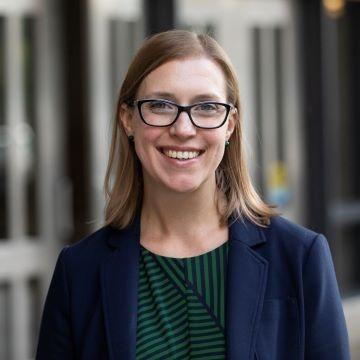Amy Van Zyl-Chavarro

Contact Information
avanzyl-chavarro@rwu.eduAmy Van Zyl-Chavarro, native to Colombia, has been teaching human rights law for the past seven years. She earned her Juris Doctor, with a concentration in international law, from Suffolk Law School. Professor Chavarro has been involved in several research and writing projects, primarily focusing on the rights of indigenous peoples under both international human rights law and U.S. domestic law. Her publications are mainly centered around the rights of indigenous peoples in relationship to education and media as defined by the U.N. Declaration on the Rights of Indigenous Peoples. She has also partnered with Suffolk University Law School’s Human Rights and Indigenous Peoples Clinic in litigating a case before the Inter-American Human Rights system against Guatemala, regarding indigenous peoples’ rights to their own forms of media. Almost a decade after filing an initial petition with the Inter-American Commission, the Inter-American Court of Human Rights published its ruling in December, 2021. Advocacy efforts to push for domestic implementation of the Court’s judgment are ongoing. Professor Chavarro has also worked with the Center for Justice and International Law (CEJIL), helping with some of their cases before the Inter-American Court of Human Rights. Prior to devoting herself fully to practicing human rights law, she spent a decade working in immigration law and advocacy, assisting refugees and immigrants in the U.S. with various types of immigration procedures, including asylum and family reunification cases.

